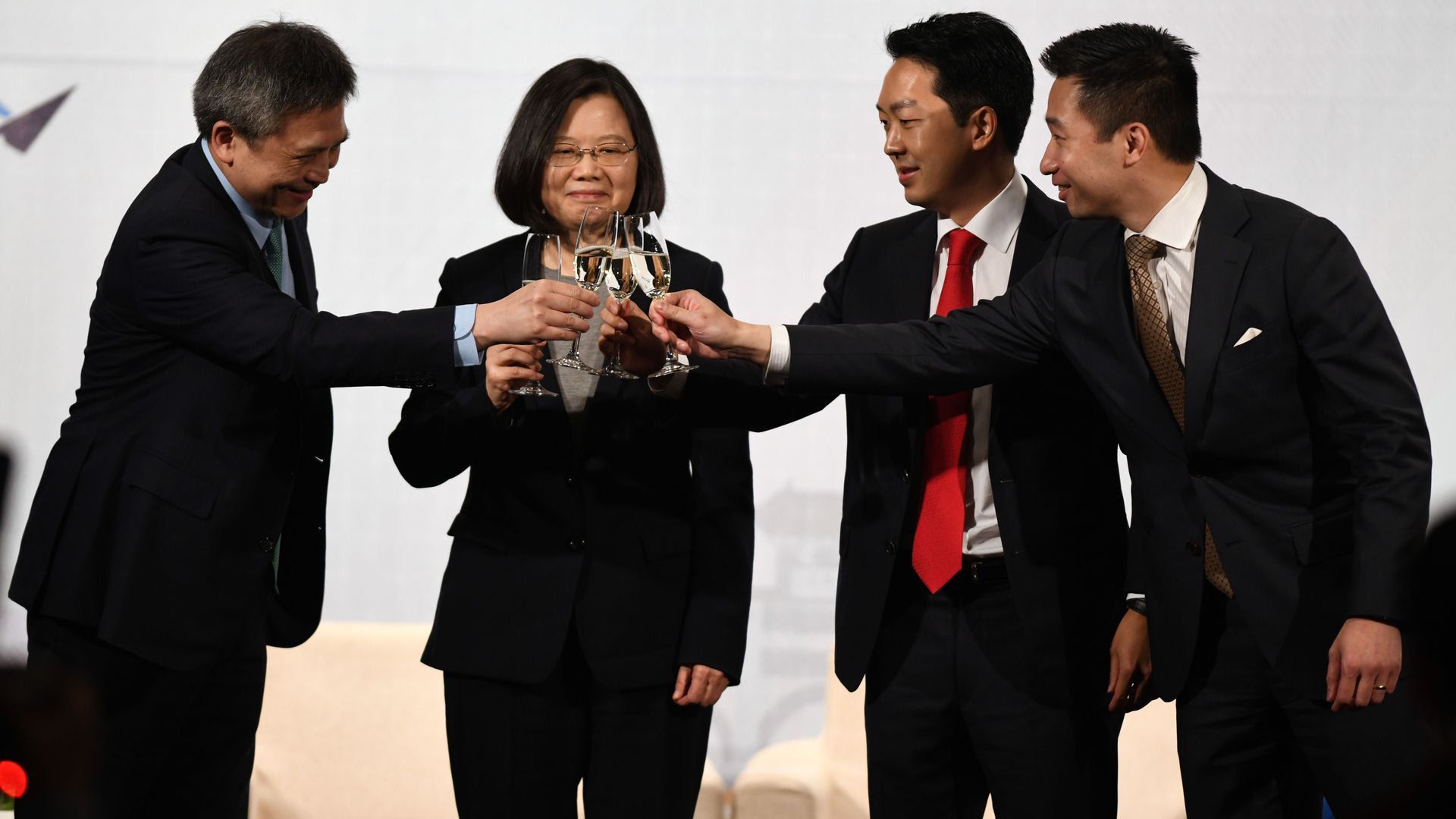Mar 23, 2018 - Politics & Policy
Trump's U.S.-Taiwan policy shift
Add Axios as your preferred source to
see more of our stories on Google.

American Institute in Taiwan director Kin Moy, Taiwanese President Tsai Ing-wen, AmCham Taipei chairman Albert Chang and U.S. Deputy Assistant Secretary of State Alex Wong (from l to r) toast during a banquet in Taipei on March 21, 2018. Photo: Sam Yeh / AFP / Getty Images
